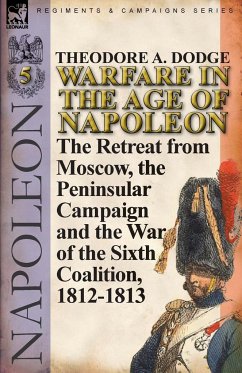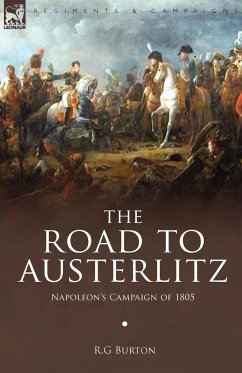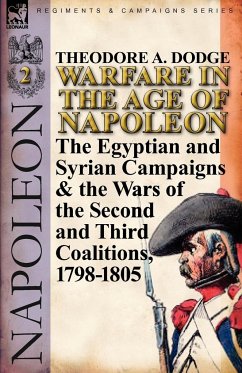
The Art of War
Versandkostenfrei!
Versandfertig in 1-2 Wochen
16,99 €
inkl. MwSt.

PAYBACK Punkte
8 °P sammeln!
The Art of War by Sun Tzu and Principles and Maxims of the Art of War by Pierre G. T. Beauregard Two classic works on the attainment of victory The 'art of war' has received much focus in recent times, especially within the business and managerial communities who have appreciated that the application of 'strategy' and 'tactics' in corporate development must necessarily originate in the military applications of those terms. In consequence there has been a revival of interest in works of Jomini, Clausewitz and even in 'the Devil's politics' as explained in Machiavelli's ' The Prince.' The succin...
The Art of War by Sun Tzu and Principles and Maxims of the Art of War by Pierre G. T. Beauregard Two classic works on the attainment of victory The 'art of war' has received much focus in recent times, especially within the business and managerial communities who have appreciated that the application of 'strategy' and 'tactics' in corporate development must necessarily originate in the military applications of those terms. In consequence there has been a revival of interest in works of Jomini, Clausewitz and even in 'the Devil's politics' as explained in Machiavelli's ' The Prince.' The succinct phrasing of Sun Tzu's classic The Art of War appeals not only because of its extreme age but also because its author manages to come to the crux of each issue with little preamble and quintessential simplicity. Sun Tzu was a military commander in ancient China whose status and influence borders upon the legendary, although some historians place him as a general of King Helu of Wu between 544-496 BC and others more broadly within the 'warring states' period of 476-221 BC. The Art of War is widely acknowledged to be one of the most successful books of military strategy ever written and was first translated from its original Chinese into French in 1772. Since then its status has grown until for many its is required reading and its iconic status means no explanation of its content is required. Sun Tzu's text is accompanied in this Leonaur edition by a treatise on the Principles and Maxims of the art of War, which demonstrates the teachings of the master as applied to battlefields fifteen hundred years later. Beaureguard's work considers Sun Tzu's teachings and applies them to the American Civil War; it was written to assist Confederate commanders and forces. Even though the Confederacy lost the conflict it is widely acknowledged that it possessed the finest military minds and officer class. The American Civil War was one of the first wars of the industrial age and it became a struggle dominated by manufacturing capabilities, logistics and technological developments in communication-all elements that modern military leaders and businessmen understand very well. Leonaur editions are newly typeset and are not facsimiles; each title is available in softcover and hardback with dustjacket.














